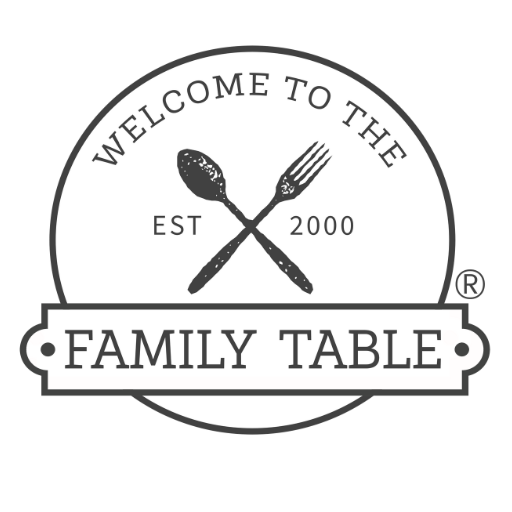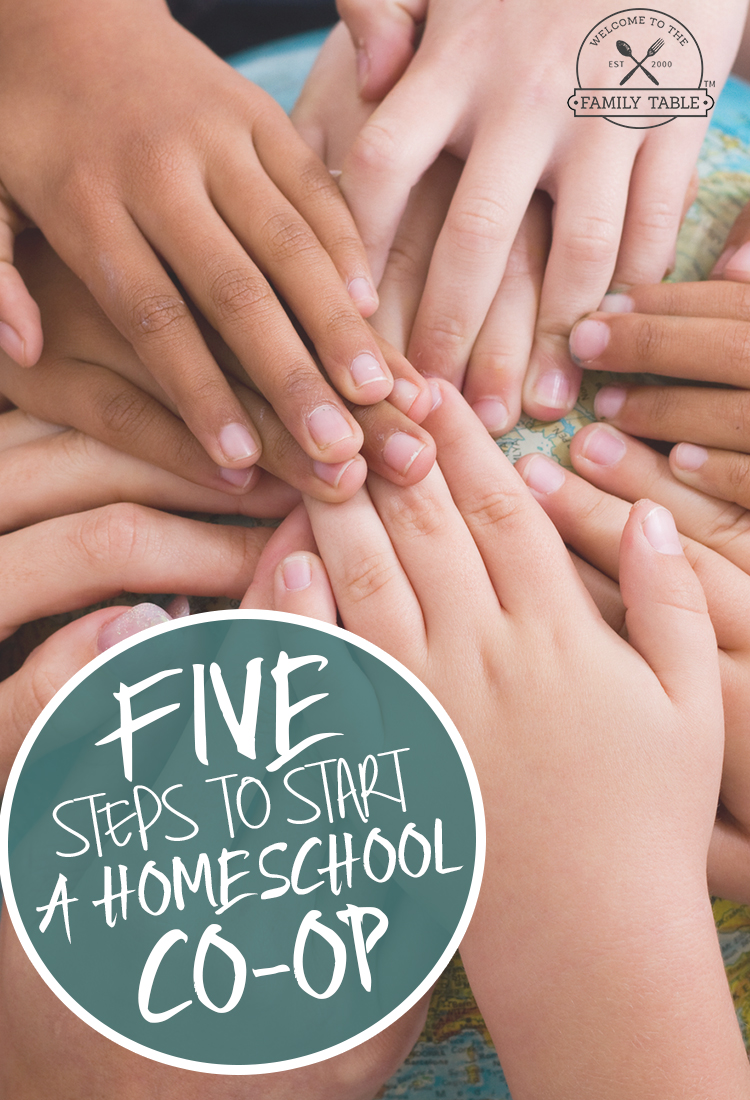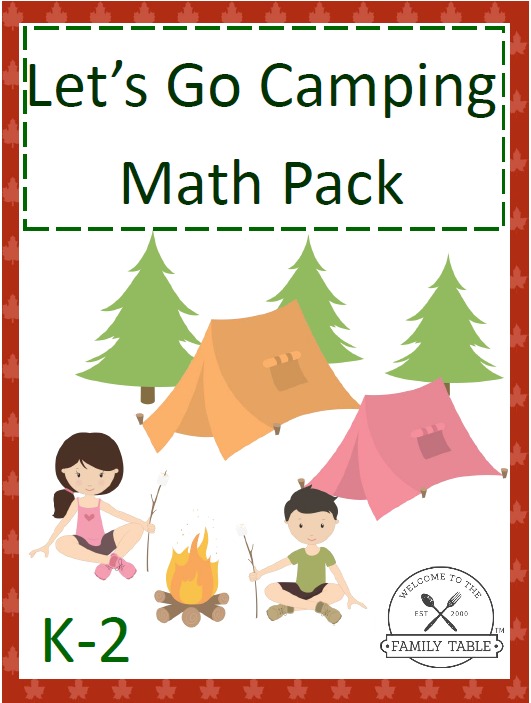5 Reasons to Consider Homeschool Co-Ops

The basic concept of cooperative homeschooling — aka homeschool “co-ops” — is to “cooperate” with one or more families to share any part of the homeschool educational process. A co-op can be as simple as two families meeting regularly to share schooling on a particular subject (as my two sisters-in-law do weekly), or as structured as a district-provided public program or a charter group from an organization such as Classical Conversations. Co-ops can be academically focused, socially focused, or spiritually focused — or a combination of these.
When I was homeschooled in the late 1980s, there were very few organized options for co-op schooling. We were fortunate to find a homeschooling group set up as an independent school to co-op with, although we had to drive more than an hour away to attend any of the co-op programs. Because many of the families lived so far apart from each other, the co-op classes were usually one or two-day programs. I remember learning how to make a quilted pillow and basic crochet. We also put on a Christmas play together.
Today’s homeschooling co-op options are diverse and take many forms, such as:
- Public programs provided by local school districts (and often include funding for curriculum)
- Once-a-week shared teaching programs through organizations such as Classical Conversations
- Weekly or monthly co-op days provided through local homeschooling support groups
- Subject-specific co-ops in areas such as science, foreign languages, PE, and arts
- Informal co-ops, where two or more families come together for academic, social, or spiritual purposes
Whatever the form, co-ops can be very useful for enriching your homeschooling agenda with additional academic and social opportunities.
Why we love homeschool co-ops
Our family has been involved in both formally organized and informal homeschool co-ops. Our first year homeschooling, our local homeschool support group offered a weekly co-op, teaching subjects such as writing, art, and music. My girls loved the weekly interaction with other elementary age children, and I enjoyed seeing the moms each week for some social time. Because the girls had been in private school until that year, this environment was also an ideal transition for us.
However, our group grew so much that year, that it wasn’t feasible to continue to offer such a structured program without leaving many families out. Since then, our group has offered education on how to start your own informal co-op and has been a catalyst for bringing families together to co-op in their own areas of interest. At first, I was disappointed because my family really enjoyed the existing setup; however, I quickly realized that an informal co-op could still meet our social and academic needs, while offering more flexibility and freedom than a large organized co-op.
This year, I decided to start my own informal co-op — a girls’ book club — and it has turned out to be one of the best things we’ve done as a homeschooling family. You can learn how to start your own homeschool book club here and here. Through the girls book club, we’re covering the academics of reading and writing, spiritual character development through our discussion times, and cherished fellowship time with the participating moms and daughters.
I’m so pleased with how this style of informal co-op schooling has worked for us, that I’m beginning to plan a second summer co-op focused on experiencing Colorado’s diverse geology.
Why consider a homeschool co-op?
There are many reasons that you might consider joining or starting a homeschool co-op. Based on my family’s experience with co-ops, here are five reasons why I think you should consider co-op opportunities:
1. Support
One of the quickest ways to burn out as a homeschooling mom is to stay isolated. I know we don’t all live in large metropolitan areas with dozens of co-op schooling options, but hopefully you’ve found at least one homeschooling family within driving distance from you that you can partner up with. Remember, my family drove more than an hour away to interact with other homeschooling families! Some of us are more social than others, but having at least a basic support system for homeschooling is essential. Regular in-person interaction with homeschooling moms you relate to is very rejuvenating. Sharing the experience is helpful in practical ways, too.
2. Socialization
Although we homeschoolers dread being asked over and over again whether our children will be socialized, we can’t overlook the need for lots of interaction with all ages in a variety of settings while homeschooling. However, rather than your children being thrown into an unstructured social setting (such as being let loose on the playground to do and say whatever they want), your children have the opportunity to experience beneficial social situations in your co-op. Whether it’s giving short presentations in front of a group, playing get-to-know-you games, doing crafts or projects together, playing organized games such as charades or Scrabble, or helping other moms set up food or play with the little ones, your children can develop positive social skills by participating in a co-op.
3. Specialization
I believe we are all equipped by God to teach our children. However, I think it’s a great benefit when homeschooling communities can share specific talents and specializations with one another. My children participate in weekly worship dance and PE Plus programs designed for homeschoolers, and I feel blessed that the God-give talents of others are being passed on to my three girls through these classes. Whether it’s music, sports, science, computer skills, arts, foreign languages, or crafts such as sewing, there are many skills that are more easily taught by a specialist. If you have access to any specialists in your homeschooling group, it would be beneficial to find a way to collaborate on teaching that specific skill.
4. Sharing
Think group discounts, potlucks, cookie exchanges… Sometimes things are just more enjoyable (and more economical) when you’re sharing! Rather than being solely responsible for every component of your homeschooling day, you can share the load when you’re co-op schooling. Our co-op shares the responsibilities of hosting, providing snacks and craft supplies, leading activities, cleaning up, and keeping the littlest siblings entertained. As a group, we were also able to get a group discount on the books we chose by contacting the publisher. And when it’s time to celebrate, no single person is responsible for throwing the party!
5. Staying on course
Who doesn’t love the flexibility of homeschooling? I know I do! However, I also find that the accountability of meeting regularly with other homeschooling moms helps me stay focused and stay on course. Developing a regular reading and discussion schedule with my tween daughters to help us stay on track with the book club has also helped us develop better reading habits for our unit study work as well. Plus, moms are always idea-swapping and sharing tips to help each other overcome struggles and stay on course.
“Two are better than one, because they have a good return for their labor: If either of them falls down, one can help the other up. … Though one may be overpowered, two can defend themselves. A cord of three strands is not quickly broken.” — Ecclesiastes 4:9,10,12
As with any homeschooling decision, prayer and spousal agreement are vital. Before you plan to start or join a homeschool co-op, make sure you understand the co-op’s mission, what is expected of you and your children, and how participating fits into your overall homeschooling goals. As long as you’re on the same page as the other members, co-op schooling can be a truly rewarding experience!



